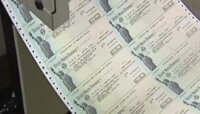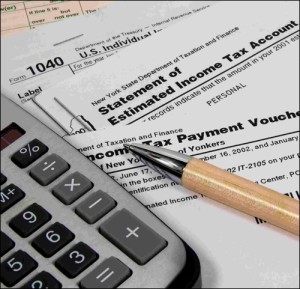Dear Bonnie, I just filed my tax return and found that I owe, but don’t have the money to pay. Are they going to take the money out of my bank account? Anonymous, Sonoma
Dear Anonymous, If you are unable to pay your tax liability, your account ends up in the IRS collection department — but don’t panic. First of all, it takes a few weeks to process your income tax return and figure out that you owe and that you haven’t paid.
Once they know you haven’t paid, automatic collection activity begins. But only the computer is assigned to your case. You will not be actively pursued except through correspondence. A series of three bills will be sent to you over about a six-month period. If payment is not received by the end of this cycle, your account will go to collections. If you can pay off the debt within this time frame, you needn’t go to the expense or trouble to set up an installment agreement. You simply make payments with each bill that arrives.
If you can pay by credit card with a fair rate or borrow money from family or friends, you are better off because IRS penalties and interest accrue at astounding rates. The penalty for failure to pay will mount to, and max out, at 25 percent of the tax liability within five months.
The IRS has 10 years from the date the tax was assessed to collect the balance due. There are some actions that may increase the statute of limitations. For example, The IRS may suspend collections and extend the statute while considering an offer in compromise or innocent spouse relief cases or if you agree to an extension during an audit.
Open the correspondence you receive from the IRS and deal with it. When the six-month billing cycle is complete and if you haven’t paid, you will likely receive a notice of intent to levy. Call them. Do not hesitate because if you do, they will not think twice about seizing your bank account, garnishing your wages or sending levy requests to anyone who has ever issued a 1099 to you. How embarrassing.
When you call, explain your reasons for not paying. Perhaps you are out of work, or ill, or suffering from some other hardship. The folks there are very nice. Really, they are. And with the advent of the Fresh Start Program they are more than willing to help you. You may be deemed uncollectible, which means all collection activity will be suspended for a year while you get it together. The collector may be able to set up an installment agreement for the balance due. He may suggest you submit an Offer in Compromise. There are many possibilities that will enable you to sleep at night.
Note that the IRS can’t seize your property if you have a current or pending Installment Agreement, Offer in Compromise, or if it agrees that you’re unable to pay due to economic hardship, meaning seizing your property would result in your inability to meet basic, reasonable living expenses. So don’t be afraid to contact them to work it out. It’s a lot less stressful and embarrassing than having your money or property seized.
If you can’t make headway with a collection representative you are entitled to have the case reviewed with the collection manager. You have the right to an appeal process.
IRS Publication 594 provides complete information on the collection process.
If you have a tax question you would like answered, write to [email protected]. Bonnie Lee is an Enrolled Agent, admitted to practice representing taxpayers in all 50 states at all levels within the Internal Revenue Service. She is the owner of Taxpertise in Sonoma,.




Be First to Comment